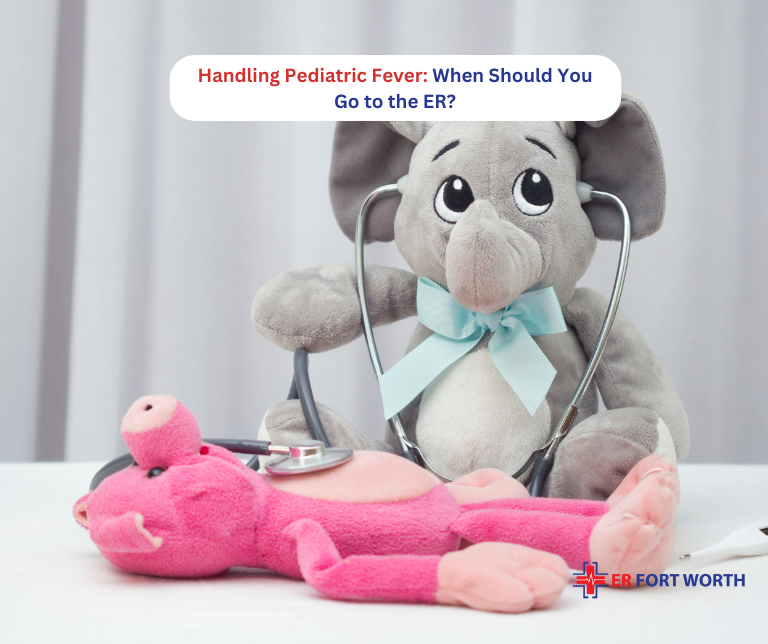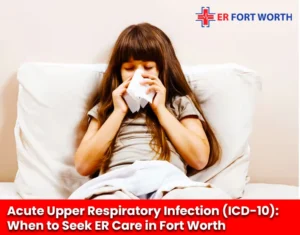Your child feels warm to the touch. The thermometer confirms your fear: it’s a fever. But how do you know when pediatric fever is serious enough to warrant a trip to the emergency room?
Understanding how to respond to your child’s fever can mean the difference between unnecessary panic and timely medical attention.
This guide explores fever in babies and equips you with the knowledge to make informed decisions. You’ll learn when to treat pediatric fever at home, when to call the pediatrician, and when to seek emergency care.
Understanding Fever in Children
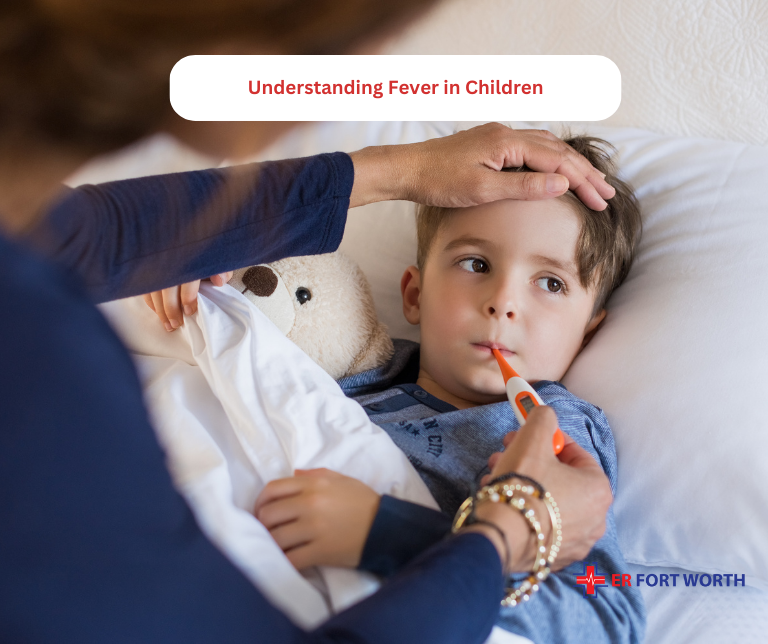
A fever is generally defined as body temperature above 100.4°F (38°C). To provide context, the normal body temperature is typically around 98.6°F (37°C).
Fever is often categorized based on its severity. A low-grade fever ranges from 100.4°F to 102.2°F (38°C to 39°C), while temperature above 102.2°F (39°C) is considered a high-grade fever.
Accurate Temperature Measurement
Taking temperature accurately is crucial. There are multiple ways of measuring temperature based on the child’s age and comfort.
| Method | Age Range | Accuracy |
| Rectal | Under 3 years | Most accurate |
| Oral | 4 years & older | Accurate |
| Axillary (armpit) | All ages | Less accurate |
| Tympanic (ear) | 6 months & older | Reliable |
| Temporal (forehead) | All ages | Less accurate |
Safety Note: When using oral thermometers, opt for digital models. Mercury thermometers pose a risk of skin burns if broken in the mouth.
Assessing Fever Severity
A fever impact isn’t solely determined by the number on the thermometer:
- Mild Fever (up to 101°F / 38.3°C): If your child shows no signs of discomfort, there’s usually no cause for alarm. You can manage mild fever at home by focusing on rest and hydration to support the body’s natural healing process.
- Moderate Fever (101°F to 102°F / 38.3°C to 38.9°C): If the fever is accompanied by symptoms like pain, rash, persistent crying, nausea, or headache, consult a pediatrician.
- High Fever (102°F / 38.9°C or above): High fever requires careful monitoring and potentially emergency medical attention, especially for infants under 1 year old.
For pediatric emergency care in Fort Worth, please contact us at 817-945-4200 or visit us for immediate assistance.
Key Considerations in Pediatric Fever
The approach to fever care for children varies depending on the child’s age and symptoms. Watch out for these warning signs that may require immediate medical attention:
- Prolonged fever
- Temperature above 100.4°F in a newborn
- Temperature above 103°F in all ages including teenagers
- Breathing difficulties
- Stiff neck
- Severe body pain
- Seizures
- Blue discoloration of tongue, nails, or lips
- Drooling or unusual sluggishness
If you notice any of these symptoms in your child, seek pediatric care immediately.
Immediate Child Fever Treatment Strategies
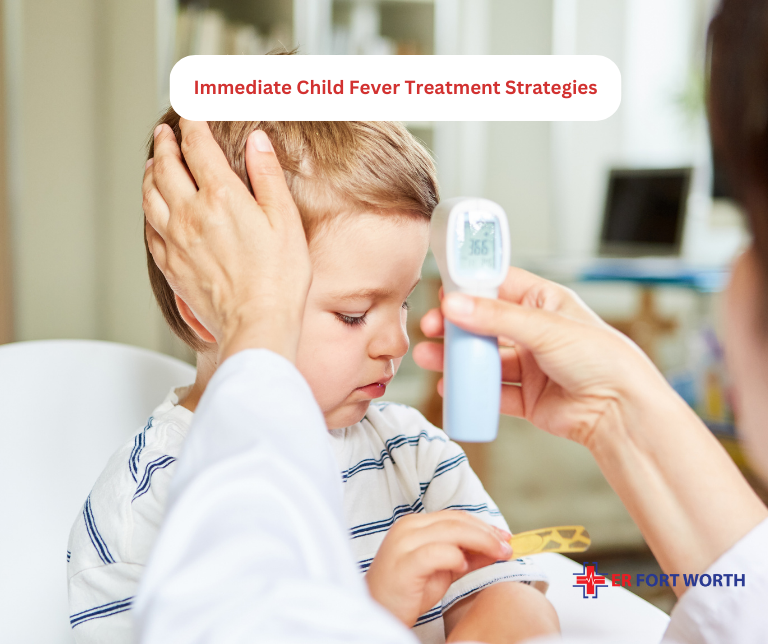
When managing pediatric fever at home, consider the following approaches:
- Encourage frequent fluid intake to prevent dehydration.
- Ensure ample rest to calm the body.
- Consider a lukewarm bath to help lower their body temperature.
- Dress your child in light, breathable clothing.
- Monitor temperature regularly for your pediatrician’s reference.
Common Causes of Fever in Children
Pediatric fever can result from various factors, including:
- Bacterial or viral infections
- Immunizations
- Common colds or coughs
- Teething in infants
- Seasonal changes
Fever is often a sign that your kid’s immune system is fighting off an infection. In most cases, these fevers resolve on their own with proper care. But if the fever persists or worsens with time, consider seeking fever emergency care.
When to Go to the ER for Fever
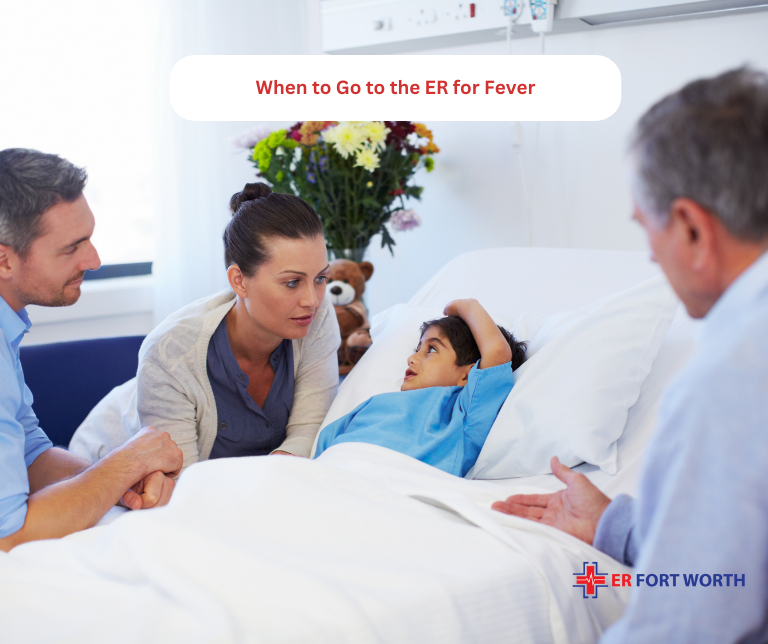
Knowing when to seek emergency fever care is crucial. Consider prompt medical attention if:
- Your child is under 3 months with any fever
- The fever is accompanied by symptoms like pain, breathing difficulties, or seizures
- The fever persists for more than 3 days
- The baby appears unusually lethargic
Pediatric fever can also cause febrile seizures in rare cases. These are convulsions triggered by high body temperatures that can lead to complications. While most febrile seizures aren’t life-threatening, they require swift medical care, especially if it’s the child’s first seizure or lasts longer than five minutes.
Remember, trust your instinct. If you’re concerned about your child’s condition, don’t hesitate to seek professional help. Our expert medical staff at ER of Fort Worth is available 24/7 to provide pediatric care when your child needs it most.
FAQs
Can I Treat Fever at Home?
Yes, mild to moderate fever can be managed at home with appropriate care. Focus on keeping the child hydrated and ensure they get plenty of rest. A lukewarm bath may also help lower their temperature.
What Are the Common Causes of Fever?
Common causes of fever in children include bacterial infection, viral infection, immunization, cough & cold, teething, and sometimes weather changes.
When Should I Be Concerned About My Child’s Fever?
If your child shows signs like intense pain, persistent vomiting, diarrhea, refusing fluid, or becoming unconscious, you should immediately take them to a pediatric emergency room.
Should I Use Cold Baths or Alcohol Rubs to Lower My Child’s Fever?
Cold baths or alcohol rubs are not recommended for lowering a child’s fever. Instead, use lukewarm water for bathing, which can gently reduce their body’s temperature without causing discomfort or rapid temperature fluctuations.

